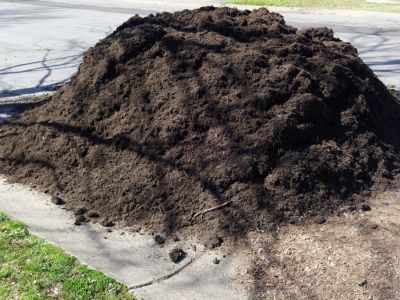Types of Mulch for the Garden
There is a wide variety of mulch types available, which can be broken down into two large groups: organic and inorganic.
Organic – Organic, or natural mulches, include such things as hardwood chips, pine straw, grass clippings, and crushed leaves. Inorganic -Inorganic, or synthetic mulches, include pebbles, crushed rock, plastic, rubber mats, or chips.
Organic mulch tends to cost less than synthetic mulch but has to be replaced more frequently due to deterioration.
Benefits of Using Mulch
There are many advantages of adding mulch to a garden area, besides making the garden more attractive and finished looking. These include:
One of the best benefits of any mulch is its ability to retain moisture in the soil. Organic mulches break down over time and contribute to soil health. This can be very helpful, especially if your soil fertility is poor. Mulch reduces winter injury and helps with weed control. Other garden mulch benefits include protection from erosion and protection from mechanical injury from weed eaters and lawnmowers. Some mulch types, such as cypress, cedar, or pinewood chips do an excellent job of repelling ticks, gnats, and fleas.
Choosing the Best Mulch
The best mulch for your garden depends on a number of things, including personal preference and budget. If you are interested in improving your soil fertility, choose organic mulch that suits your needs. Gardeners wishing to keep their gardens completely organic should be careful when choosing natural mulch that contains dyes. For gardeners with a large landscaped area that they do not want to fuss with, synthetic mulch may be the best option.
